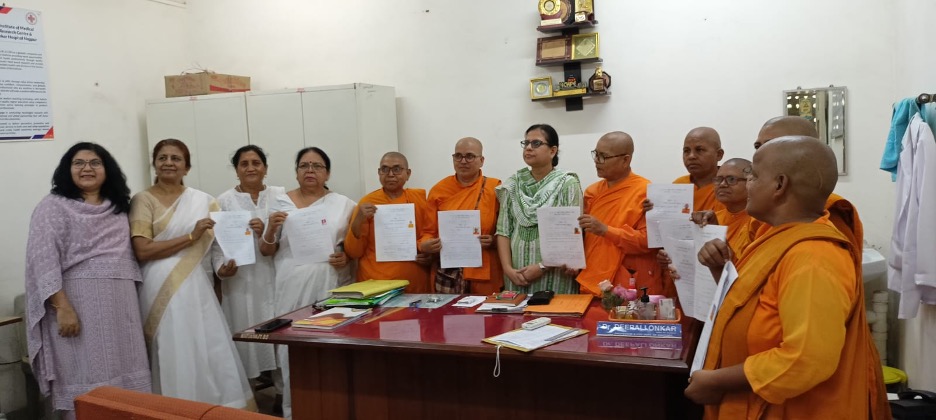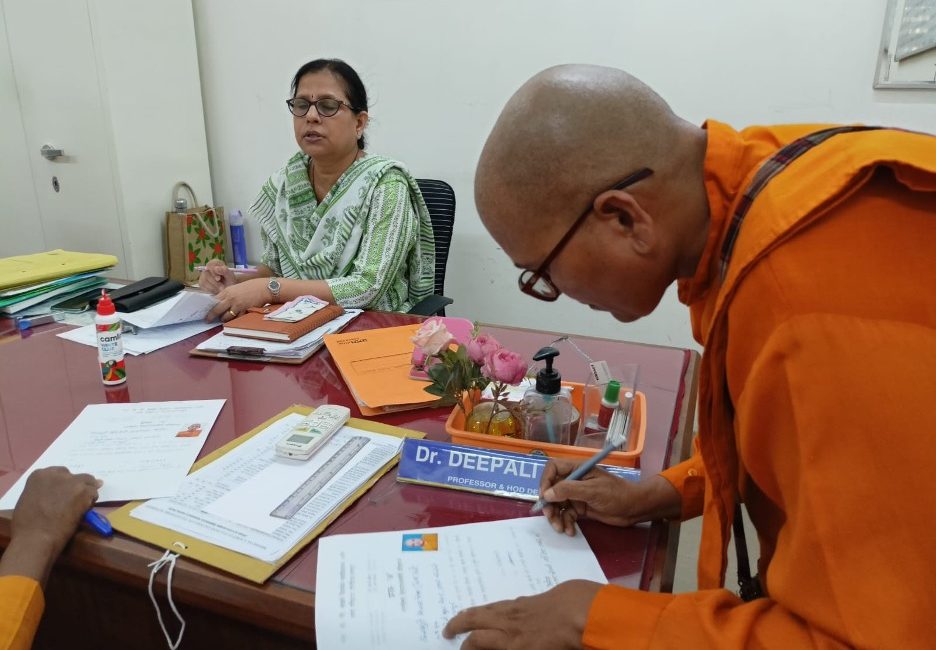On 12 June, the chief director of the Mahaprajapati Gautami Educational Foundation, Bhante Suniti Bhikkhuni, along with other female monastics (Vijaya Maitriya, Nimmal Metta, Sumedha, Mahamaya, Nagadhammni, Sukeshni, and Samaneri Dikkha), visited the Anatomy Department at Lata Mangeshkar Hospital to complete a formal process of filling out forms for posthumous body donation.
Present at this occasion were the head of the Anatomy Department, Dr. Deepali Onkar, and the dean of Lata Mangeshkar Hospital, Dr. Sajal Mitra. Along with the bhikkunis, renowned buddhist feminist activists Prof. Dr. Saroj Agalave and Usha Bodh also decided to donate their bodies posthumously and complete the application process on the 12th.
According to the teachings of the Buddha, the body is considered to be ephemeral, composed of the five aggregates (panchskandhas). If this ephemeral body can be utilized for the welfare of humanity even after death, it is considered a meritorious deed.

Recognizing the need for cadavers for medical students to study the human body, Bhante Suniti decided to set an example by volunteering herself first. Inspired by her declaration, other female monastics also pledged to donate their bodies posthumously, setting an exemplary precedent for other Indian Buddhists, monastic and lay alike.
Buddhism’s perspective on science
The teachings of Buddhism have always been aligned with an enquiring approach to the world. This means that it has often found itself in agreement with the methods of science.
The Buddha placed great importance on knowledge based on experience and reasoning. In modern times, Buddhist teachers and writers have encouraged scientific discoveries and medical science, as well as psychological and psychotherapeutic research. The decision by these bhikkhunis is a testament to their respect for science. Their example will encourage others to act to curb the spread of superstitions in the name of religion and promote scientific thinking in society.
This event reflects the progressive thinking of the Buddhist community and their support for medical science. The bhikkhunis‘ initiative will send a positive message to society and pave the way for balancing science and religion in India.


